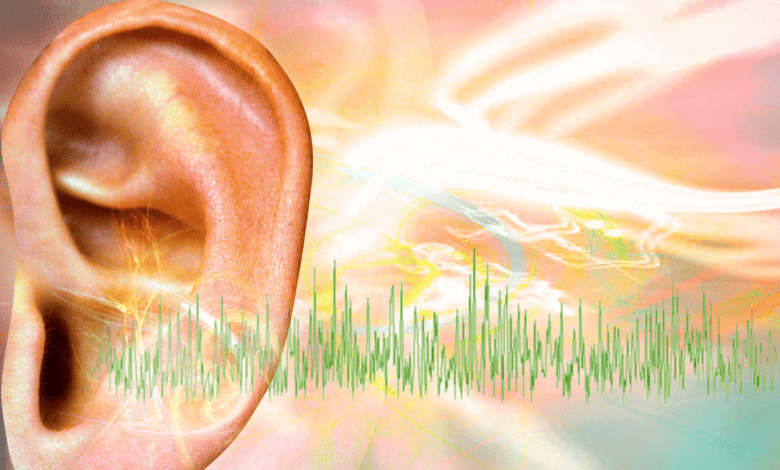Tinnitus Research: Current Advances and Long-term Prospects

Tinnitus Research – Tinnitus is a condition that affects millions of people worldwide. It is characterized by a persistent ringing or buzzing sound in the ears, which can be both annoying and debilitating. Despite its prevalence, tinnitus remains a challenging condition to treat, with no known cure. In this article, we will explore the latest research on tinnitus, including the causes, symptoms, and available treatments.
Table of Contents
What is Tinnitus?
Tinnitus is a condition in which a person perceives sounds that are not present in the external environment. These sounds can vary from person to person, but they are often described as ringing, buzzing, humming, or hissing. Tinnitus can be intermittent or continuous and can affect one or both ears.
Causes of Tinnitus
There are several factors that can cause tinnitus. Here are some of the most common:
Noise-Induced Hearing Loss
Exposure to loud noises can damage the hair cells in the inner ear, leading to hearing loss and tinnitus. This can occur from exposure to loud music, construction noise, firearms, and other sources of loud noise.
Age-Related Hearing Loss
As we age, the cells in our inner ear gradually deteriorate, leading to hearing loss and tinnitus.
Trauma to the Head or Neck
Injuries to the head or neck can damage the nerves and blood vessels that supply the inner ear, leading to tinnitus.
Medications
Certain medications, such as aspirin, can cause tinnitus as a side effect.
Medical Conditions
Tinnitus can be a symptom of several medical conditions, including Meniere’s disease, otosclerosis, and acoustic neuroma.
Click Here to Know more about the causes of Tinnitus
Symptoms of Tinnitus
Tinnitus can manifest in different ways for different people. Here are some of the common symptoms:
Click Here to Know about the all symptoms and the best available treatment
Types of Sounds
Tinnitus can be perceived as a ringing, buzzing, humming, hissing, or whistling sound.
Severity
The severity of tinnitus can vary from mild to severe. In some cases, it can be so loud that it interferes with daily activities.
Frequency
Tinnitus can be intermittent or continuous. It may also fluctuate in intensity.
Duration
Tinnitus can be temporary or permanent. In some cases, it may resolve on its own, while in others, it may be chronic.
Diagnosis of Tinnitus
Diagnosing tinnitus involves a thorough evaluation of the patient’s medical history, physical exam, and hearing tests. Here are some of the diagnostic methods used:
Physical Exam
During a physical exam, the doctor will check the ears, head, and neck for signs of abnormalities.
Hearing Tests
Hearing tests, such as audiometry and tympanometry, can assess the patient’s hearing and determine the extent of any hearing loss.
Imaging Tests
Imaging tests, such as CT scans and MRI, can help identify any structural abnormalities or damage to the ear or brain that may be causing tinnitus.
Treatment of Tinnitus
While there is no cure for tinnitus, there are several treatments available that can help alleviate the symptoms. Here are some of the commonly used treatments:
Click Here to Know about Best Ear Ringing Relief Supplement
Sound Therapy
Sound therapy involves using external noise to help mask or distract from the tinnitus sound. This can be done through devices such as white noise machines, hearing aids, or even a fan.
Cognitive Behavioral Therapy (CBT)
CBT is a type of therapy that focuses on changing negative thought patterns and behaviors associated with tinnitus. This can include relaxation techniques, stress management, and mindfulness meditation.
Medications
There are several medications that can be used to treat tinnitus, such as antidepressants, antianxiety drugs, and antihistamines. However, the effectiveness of these medications varies and they may cause side effects.
Alternative Therapies
Alternative therapies such as acupuncture, hypnosis, and chiropractic therapy have also been used to treat tinnitus. However, the effectiveness of these therapies is not well-established.
Future Prospects for Tinnitus Research
Despite the available treatments, tinnitus remains a challenging condition to treat. However, ongoing research offers hope for the future. Here are some of the promising areas of tinnitus research:
Neuromodulation
Neuromodulation involves using electrical or magnetic stimulation to modulate the activity of the brain regions responsible for tinnitus. This approach has shown promising results in several clinical trials.
Genetics
Recent studies have identified several genetic factors that may contribute to the development of tinnitus. Understanding these genetic factors may lead to new therapies for tinnitus.
Stem Cell Therapy
Stem cell therapy involves using stem cells to repair damaged tissues in the ear. This approach has shown promise in animal studies and may be a potential treatment for tinnitus in the future.
Brain Imaging Techniques
Advanced brain imaging techniques, such as fMRI and PET scans, are being used to better understand the neural mechanisms underlying tinnitus. This may lead to new therapies that target these mechanisms.
Conclusion
Tinnitus is a challenging condition to treat, but ongoing research offers hope for the future. While there is no cure for tinnitus, there are several treatments available that can help alleviate the symptoms. If you experience tinnitus, it’s important to speak with a healthcare provider to determine the underlying cause and find an appropriate treatment plan.
FAQs
Can tinnitus be cured?
Currently, there is no known cure for tinnitus, but there are several treatments available that can help alleviate the symptoms.
Is tinnitus a sign of hearing loss?
Tinnitus can be a symptom of hearing loss, but it can also occur without any hearing loss.
Can stress cause tinnitus?
Stress can exacerbate tinnitus, but it is not a direct cause of the condition.
Is there a link between tinnitus and depression?
Tinnitus can cause depression and anxiety in some people, but it is not clear if there is a direct link between the two conditions.
Can diet affect tinnitus?
While there is no direct link between diet and tinnitus, certain foods and substances such as caffeine, alcohol, and nicotine can exacerbate tinnitus symptoms.
Also Read: Enlarged Prostate and Erectile Dysfunction






6 Comments